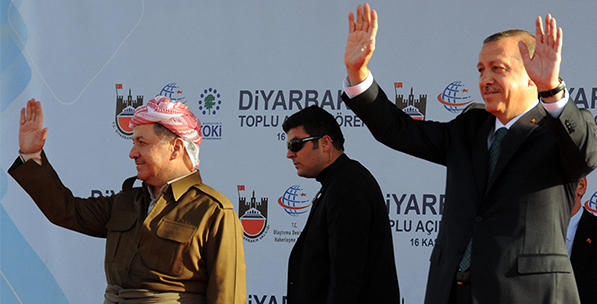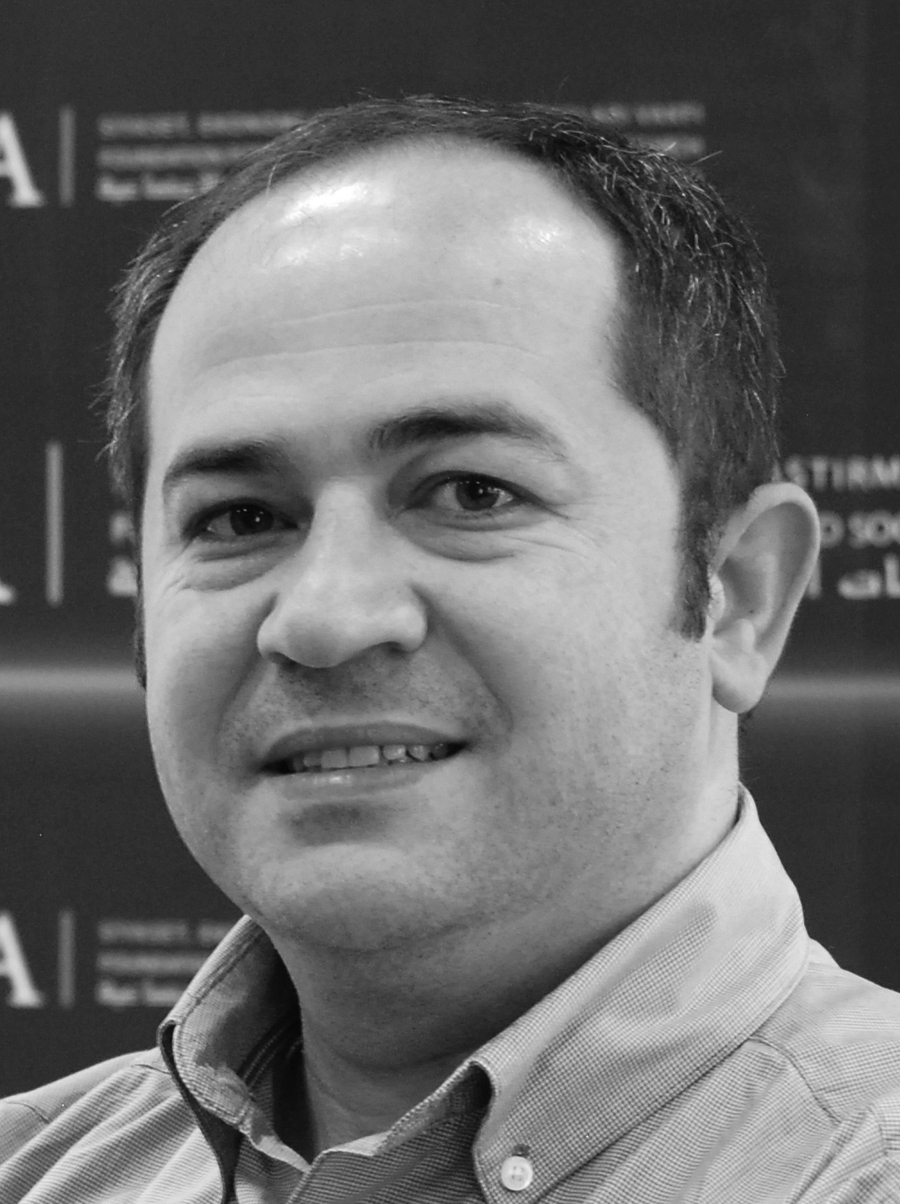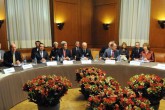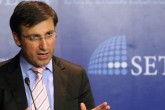The Diyarbakır visit of Erdoğan together with Barzani and Shiwan Perwer, a renowned Kurdish singer, over the last weekend was a historic move that changed the political ground of politics with its symbolic and real repercussions. The messages given, the contacts made and the images created during the two-day visit will make permanent contributions to the solution of the Kurdish question and to the building process of the new Turkey in the post-tutelage period.
KEEP ON THE RESOLUTION PROCESS
The resolution process continuously has kept gaining speed from the early days of 2013 to the midst of the year. It has, however, begun to falter as of June 2013 when (the Kurdish People’s Party (PKK) leader) Abdullah Öcalan-the Qandil-the Peace and Democracy Party (BDP) found the political ground fragile for a vital decision to transform the armed struggle into a political campaign in the aftermath of the developments in Syria and of the Gezi Protests in Taksim, Istanbul. The Qandil (the Mountain where the armed groups of the PKK is headquartered) has repeatedly implied a halt to the withdrawal (of the armed groups from Turkey) and that the ceasefire may not continue forever.
Although justification for a halt has been made due to failure to satisfy the demands – none of which was voiced during the preparation phase of the resolution process – such as empowering Öcalan’s position, commencing the democratization steps before the completion of the withdrawal stage and the involvement of a third party as an inspector, no assurance has been given on the resumption of the withdrawal even if these demands are met. However, the process was left in limbo, beyond the fulfillment of these demands, because the Qandil considered the Gezi Protests and the activities of the Democratic Union Party (PYD) in Syria as factors that make the decision for lasting politization difficult. Therefore, in order for the resolution process to regain momentum, it was necessary to change the political ground by which the PKK is affected while perusing the process.
With its consummation to change the political ground, the Diyarbakır visit has a potential to make the BDP-PKK line review its line of conduct about the political developments. The most effectual reflection of the Gezi Protests on the resolution process is that it had helped the Öcalan-Qandil duo to question the authority of Erdoğan and of the ruling Justice and Development Party (AK Party) in reaching gutsy decisions. The Öcalan-Qandil duo have decided to extend the process over a period of time, or at least to maintain the armed struggle as a threat, with the thought that the siege against Erdoğan, both inside and outside after the Gezi Protests, will rob off Erdoğan from a political performance that requires to take courageous and historic decisions for the solution of the issue. The political performance presented in the Diyarbakır visit of Massoud Barzani, President of the Kurdish Regional Administration in Northern Iraq, and of Erdoğan will create an effect of clearing the early reservations of the Kurdish Movement about the political ground and political strength of Erdoğan.
Another development that has played a role in the Qandil’s decision to slow down the process is their concerns about the future of the investments that the PYD has made in Syria. Since day one in the fight against the regime in Syria, the PYD has developed a strategy to create new power arenas through the gaps to occur among the parties in conflict. In an environment where the fight has continued between the opposition and the Bashar al Assad regime, the PYD has insisted on exerting efforts to form a political structure in the regions where it can penetrate. This, therefore, has disturbed Turkey; and the PYD has kept different Kurdish groups close to Barzani under pressure via instruments of violence, which in turn has also disturbed the Barzani administration.
These developments, which the Qandil has greeted as a new front outsid
In this article
- Foreign Policy
- Opinion
- 2013
- Assad Regime
- Bashar Al Assad
- bdp
- Cease-fire | Ceasefire
- Democratic Union Party (PYD)
- Iraq
- Istanbul
- Kurdish Community
- Kurdish Movement
- Kurdish Question
- Kurdish Region
- Kurdistan Workers' Party Terrorist Organization (PKK)
- May 28-August 20 2013 The Gezi Park Protests
- Middle East
- Northern Iraq
- Opposition
- PKK - YPG - SDF - PYD - YPJ - SDG - HBDH - HPG - KCK - PJAK - TAK - YBŞ
- Recep Tayyip Erdoğan
- Syria
- Syrian Civil War
- Syrian Conflict
- Syrian Crisis
- Syrian Regime
- taksim
- Terror
- The President of the Republic of Türkiye
- Turkish President
- Türkiye's Justice and Development Party | AK Party (AK Parti)



